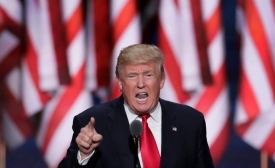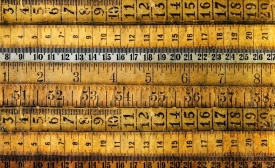united states

Mark Dillen examines President Trump's confusing communications regarding Russia and Ukraine.
Why does this history matter? Because we are living at a similarly fraught moment, in a time when international alliances are in flux. America’s reputation abroad has plunged in many countries. Conspiracy theories have never been easier to create and pass on, both abroad and at home. [...] Yet at the moment, there is no systematic U.S. or Western response to Russian, Chinese or Islamic State disinformation.
Why does this history matter? Because we are living at a similarly fraught moment, in a time when international alliances are in flux. America’s reputation abroad has plunged in many countries. Conspiracy theories have never been easier to create and pass on, both abroad and at home. [...] Yet at the moment, there is no systematic U.S. or Western response to Russian, Chinese or Islamic State disinformation.
To be an effective public diplomat, you need a well of sufficient soft power resources on which to draw. There is no canonical definition of public diplomacy (PD), but the official practice of it involves using informational, educational, and cultural tools to engage with international audiences to advance foreign policy goals. For the United States, PD officials often design strategies and employ tools that leverage what makes America popular and attractive.
Inland Empire musician and UC Riverside alumnus Eddie Valencia recently got the chance to utilize his talent as a percussionist — in Russia. He took part in OneBeat, a global music-based diplomacy program. Valencia first participated in the domestic version of the program in 2015, but returned this year to step out of his musical comfort zone and explore the sounds and styles of Russia.

Katherine Brown delves into the importance of evaluating public diplomacy and offers advice on how to do so.
We’ve written recently about widespread concerns in the foreign policy community — both within and outside the State Department — over the management, direction and role of the State Department under former oil company chief executive Rex Tillerson. [...] Now the amateurism and arrogance has reached constitutional dimensions. On the day President Trump grudgingly and without public ceremony signs Russia sanctions legislation, State has managed to undermine the impression we are serious about curbing Russian behavior.







